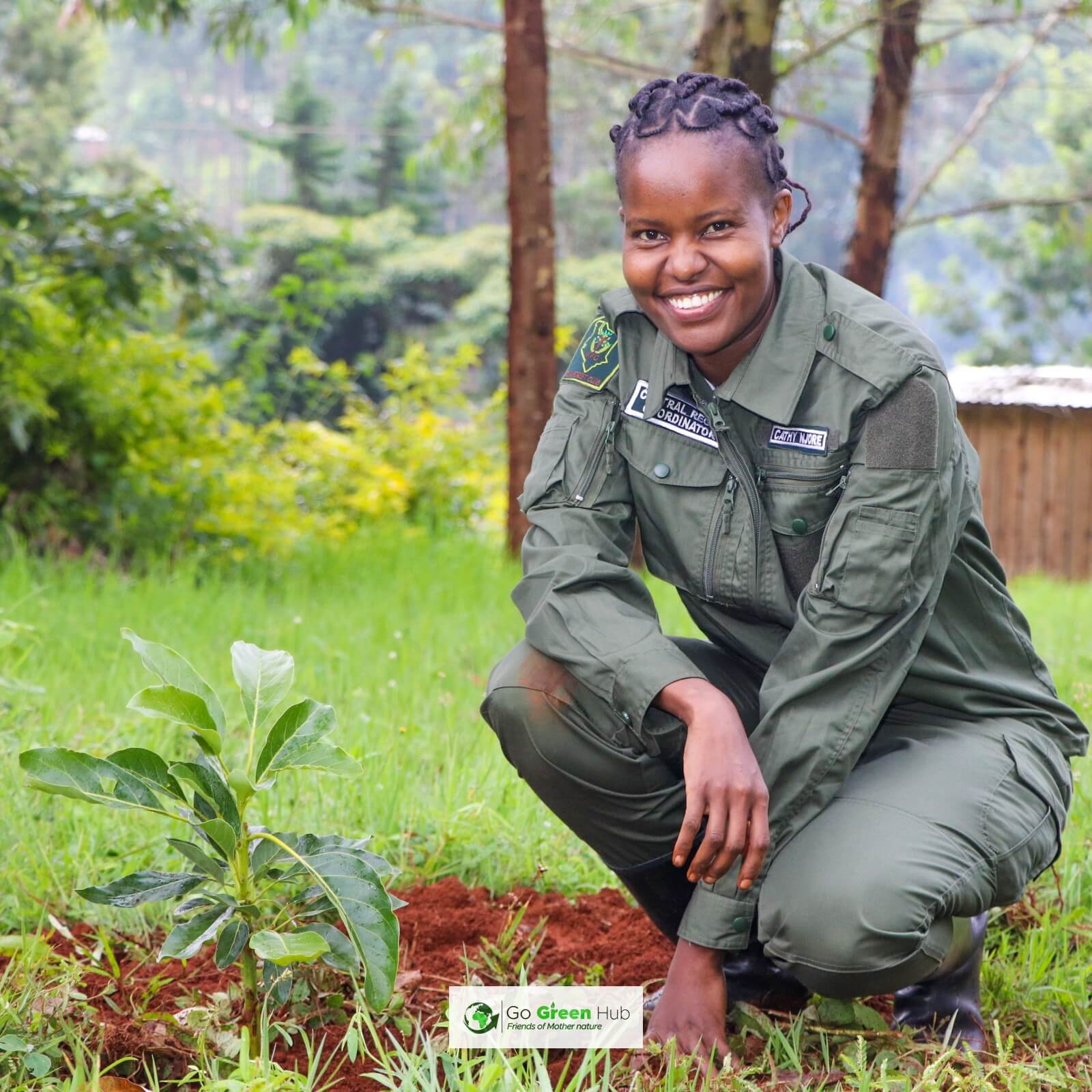With experts across the WILDLABS community working with every type of technology and in every imaginable environment, our platform is a great place to find advice and resources on choosing what tools are right for your conservation project. Whether you're in the market to try a new camera trap model, want to experiment with drones for the first time, or need help weighing the pros and cons of data management tools, there's someone in the WILDLABS community who can help you make a smart and informed choice!
The Community Base is our general gathering group. It's the place where we cover more general, big picture topics in conservation technology - ones that don't fit neatly into our other groups. If you don't know where to post something, just post it in this group. Our moderators will move it if needed!
At our Community Base, you'll find updates from the WILDLABS team on upcoming events and opportunities, and have the chance to shape our programs and platform with your opinions. And most importantly, the Community Base is also home to our Welcome to WILDLABS thread, the best place to introduce yourself to us and the community. Stop by and tell us what you're working on!
Whether you're new to WILDLABS and want to know where to begin, or you're a longtime member looking for a handy bank of resources, our Getting Started on WILDLABS thread will be your one-stop guide to getting the most out of our platform.
Want to find out more about WILDLABS? Check out our recent community call:
Header image: Ana Verahrami/Elephant Listening Project
Group curators
- @StephODonnell
- | She / Her
WILDLABS
I'm the Community Manager at WILDLABS



- 152 Resources
- 657 Discussions
- 30 Groups
- @TaliaSpeaker
- | She/her
WILDLABS & World Wide Fund for Nature/ World Wildlife Fund (WWF)
I'm the WILDLABS Research Specialist at WWF-US



- 12 Resources
- 54 Discussions
- 24 Groups
- @EllieW
- | She/Her



- 64 Resources
- 124 Discussions
- 14 Groups
- @DuncanBrown
- | he
Design Strategist - Regenerative Futures
- 0 Resources
- 0 Discussions
- 13 Groups
University of Adelaide
- 0 Resources
- 9 Discussions
- 17 Groups
University of Michigan & Massachusetts Institute of Technology (MIT)
Incoming Assistant Professor and Researcher in Artificial Intelligence for Conservation

- 2 Resources
- 3 Discussions
- 3 Groups
- 1 Resources
- 1 Discussions
- 1 Groups
Developer of the Android app DC Dolphin Communicator, and others
- 0 Resources
- 0 Discussions
- 10 Groups
- @skcjones
- | she/her
Australian National University (ANU)
I have a background in applied conservation with over fifteen years of experience in NGOs, government and academia. This experience has involved conducting research for ecological monitoring and species conservation.
- 0 Resources
- 0 Discussions
- 3 Groups
São Paulo State University (UNESP)
- 0 Resources
- 0 Discussions
- 7 Groups
Wildlife conservationist currently working on biodiversity monitoring and community development for AFOLU VCS & CCB projects.
- 0 Resources
- 0 Discussions
- 14 Groups
Endeavour Veterinary Ecology Pty Ltd
- 0 Resources
- 1 Discussions
- 1 Groups
Saint Louis Zoo & Saint Louis Zoo WildCare Institute
- 0 Resources
- 1 Discussions
- 7 Groups
An early career conservationist with special interest in community-based conservation
- 0 Resources
- 4 Discussions
- 3 Groups
- 0 Resources
- 4 Discussions
- 2 Groups
May 2024
event
June 2024
event
October 2024
Are you heading to Hawai'i for the IUCN World Conservation Congress?
16 August 2016 3:29pm
28 August 2016 6:22am
Hi Enrique, a bunch of the Wildlife Crime Tech Challenge solutions focus on transport. See esp. p 13, 19, 21, 29 of the following: https://wildlifecrimetech.org/templates/Prize_Winner_Profiles.pdf
28 August 2016 6:55pm
Brilliant, that's so much for the link. I got wind of the scale of the magnitude of the problem, while researching a story on ports of call for invasive species. http://www.livescience.com/29357-map-shipping-spreads-invasive-species.html
Presenting at the IUCN Congress? Share your event details
16 August 2016 4:30pm
26 August 2016 3:54pm
Hi all
We are running a session on IUCN's decision support tools (mostly databases) for addressing invasive alien species. Many of the tools have come about due to mandates from CBD, and in partnership with other organisations.
Species Conservation Pavilion
4 September 2016
19:30 - 21:30
Details can be seen here - https://portals.iucn.org/congress/session/12436
Many thanks
26 August 2016 7:35pm
On behalf of the United States Department of State, I'd like to invite all interested conservationists, technologists, and others to take part in-person or online in a conservation technology event centered around the upcoming Zoohackathon!
On Friday, September 2 at 1:00 - 1:30 pm in the U.S. Pavilion at the World Conservation Congress, Undersecretary of State Cathy Novelli will host a group of leading wildlife officials, including CITES Secretary General John Scanlon and Association of Zoos and Aquariums Executive Director Kris Vehrs, for a conversation about Zoohackathon and conservation technology generally. We'll show off the recently developed Wildlife Witness app and then answer a few questions solicitied from YOU via WildLabs.net!
Please reply to this thread, write me directly, or follow up with other Zoohackathon threads on WildLabs to ask your conservation tech questions to this group of senior officials. Before the event, we'll pull a few of these questions and ask our panel, film the responses, and provide film and transcript follow-ups on WildLabs.
And if you can join us at the event in Hawaii, we'd love to see you! Then stick around for Jane Goodall's talk immediately following.
Thanks!
DeMark
Zoohackathon Global Coordinator, U.S. Department of State, [email protected]
27 August 2016 1:19pm
Hi @StephODonnell and others,
I'll be joining NOAA, Pew, Walton etc for a workshop on "Application of Monitoring, Control and Surveillance (MCS) Tools for Marine Protected Area (MPA) Enforcement" (session number: 10303; room 307AB; September 2, 2:30-7pm).
My part will be to present on a project that Stimson is launching ahead of the Our Ocean Conference called Secure Our Oceans, focused on technology and innovation for ocean security, including IUU (partnership with National Geographic). Check out www.secureoceans.org
J
Loud noises! We've reached 1000 members!
10 August 2016 4:10pm
Are you working on an inspiring tech project? NT100 nominations now open!
5 August 2016 10:38am
CASTING AMERICA'S GREATEST MAKERS! SPECIFICALLY LOOKING FOR WILD LIFE CONSERVATION TOOLS/INVENTIONS.
24 June 2016 9:14pm
Solar Impulse 2 completes first ever Atlantic crossing by solar plane
23 June 2016 10:00am
May Meetup: Wolf detectors, Multispectral Cameras and Gorilla Radios
24 May 2016 2:13pm
Trophy hunting and #tech4wildlife
3 May 2016 1:30pm
Going into Business for Wildlife Conservation
13 April 2016 12:31pm
Sat 2 Apr: Science Makers: Wildlife and conservation technologies
29 March 2016 2:24pm
Social Tech Seed: Applications now open
23 March 2016 3:59pm
What do you do in your spare time?
2 March 2016 11:04am
Indianapolis Prize Finalists announced
9 February 2016 4:31pm
New Groups - what's in development and what would you like?
14 January 2016 3:02pm
New article about WILDLABS.NET: Where Technology and Conservation Meet
24 December 2015 4:33pm
Second Tiger Cub Dies in Crimea Zoo After Blackout
7 December 2015 10:31pm
8 December 2015 12:11pm
Hi Sofia,
While there is a argument that the death of Bengal Tigers at a zoo in Crimea could potentially be viewed wildlife crime, your original post was unclear about how this was relevant to a professional community that is focused on collaborating and sharing ideas about conservation technology. I would argue that technological innovation might not be the most important element for finding a solution to the problem you have identified. Rather, there are political, social and economic factors that must be addressed as a higher priority, and if addressed effectively, will negate the need for a complex technological solution to this issue.
That being said, I welcome any community member who might be interested to continue the discussion below.
Cheers,
Stephanie
8 December 2015 12:42pm
Hi, Stephanie
"WILDLABS.NET is a community of conservationists, technologists, engineers, data scientists, entrepreneurs and change makers. Together, we share information, ideas, tools and resources to discover and implement technology-enabled solutions to some of the biggest conservation challenges facing our planet. Join the Community to share your knowledge, explore ongoing projects, ask questions and identify major questions and needs. This community is a centralised space for field based conservationists to connect directly with technology experts, to share their challenges and source new ideas for solutions. Connecting with users on the ground will help technologists and innovators to test ideas in field environments, and adapt systems that can accelerate conservation gains. The problems faced by our planet cannot be solved by people working in silos. Become part of theCommunity and work together to build the solutions." (from WILDLABS.NET front page)
Bengal tigers (especially white ones) are identified as endangered species. Blackouts can happen anywhere.. So, as this is a community based on technological solutions, discussions, and sharing ideas and collaborating, I believed someone could have an idea about what can we, as conservationists, do, in order to prevent such loses of endangered species in the zoos, in the future. I'm less interested in politics when it concerns the lives of innocent animals suffering from imperfect conditions in the zoos etc. Any loss of endangered species, anywhere in the world, is a wildlife crime, because we can not afford to let our children live in the world where there's no elephants, rhinos or bengal tigers etc.
On the contrary, this is exactly what I've been saying, that technological innovations (ideas, projects) are exactly what could we all seriously regard in order to solve such problem that happened to the animals in the Crimean zoo. For example, zoos areas could have better equipment with alternative energy generators, or some innovative energy generators. In case of a blackout for example (man-made, natural, technological), in some country for example, it immediately puts at risk the zoos |and the safety and security of its animals|(and not only, but here we discuss environmental issues), for example if it's a cold country: Finland, Russia, Ukraine, Canada etc, on my opinion, I think it would be better if the zoos be equipped with alternative power generators. So, if anyone in the community, have an idea what kind of innovations could be used for the zoos (all over the world) I would be happy to read.
Thank you,
With love,
Sofia
France24.com video segment on wildlife conservation technology
4 December 2015 7:51pm
7 December 2015 11:55am
Thanks for posting Dave - it's a neat overview of lots of different projects. I hadn't seen the SMART hook before, so worth the watch!
Bengal tiger cub dies of cold at Crimea zoo hit by power cuts.
4 December 2015 6:22pm
Bengal tiger cub dies of cold at Crimea zoo hit by power cuts.
4 December 2015 5:36pm
Rare friendship between a tiger and a goat!
4 December 2015 5:29pm
wildtech.mongabay.com is a great resource
2 December 2015 10:40pm
3 December 2015 2:19pm
Thanks for the link - yes, I agree Mongabay's WildTech areas is a great resource for anyone interested in keeping up to date with the latest conservation tech news. Sue Palminteri's article is facinating and is definitely worth a read. The video showing the daily movement of elephants is particularly interesting (see the screenshot below) - it was a case study Katherine Chou of Google.org spoke about in her Fuller Symposium address as well. That they're getting close to real time monitoring is very exciting - it would have been amazing to have that capacity in other projects I've been involved with.
The key take-aways you highlight match a lot of what came up in the Fuller Symposium and other discussions about HWC. The consensus from Wired in the Wild - Can technology save the planet? was that no, it cannot. It is simply a very useful tool that, when used appropriately, could have significant impacts in the challenges conservation is attempting to tackle. Numerous speakers drove home the point that technology is not and should not be the starting point; we need to be technology agnostic. We must start by understanding the challenge and then looking at what (if any) technology might help to address it given the circumstances.
The Elephants and Bees approach is a great example of why we need to start with challenge rather than the technology. Sometimes the best solution is the low tech approach. Nilanga Jayasinghe highlighed this in her thought piece about HWC - giving a similar example of work WWF is doing in Nepal:
'During a recent visit to Nepal, I visited rural villages where wild elephants often raid rice fields during harvest season. The communities had installed electric fences but this tool didn't always succeed on its own. Elephants are smart and persistent: they had learned to break the fence’s electric current, and then the fence itself, by using trees to push over the supporting stakes. To solve this problem, we worked with farmers to dig fish ponds in front of the fences as an additional obstacle. Adding an additional barrier not only made it harder for the elephants to get into the fields, it also gave the communities more time to respond and drive elephants away. This simple solution has not only reduced elephant raids, but has also improved local livelihoods from the sale of the fish grown in the ponds.'

Frequently Asked Questions
30 October 2015 5:43pm























27 August 2016 7:07pm
Hello,
I won't be attending the IUCN conference in Hawaii, but I am writing an article on efforts to curtail the illegal wildlife trade through greater regional and international cooperation between the entities tasked with stopping the trade.
The premise of the artlice will focus on the issues raised in this working paper. https://cites.org/sites/default/files/eng/cop/17/WorkingDocs/E-CoP17-28.pdf
I'd like to focus on initiatives underway to clamp down on the transportation and logistics aspects of the global trade. And I'd like to interview the representatives of the conservation groups and agency officials attending for their views on what they'd like to see happen at Cop17.
My deadline is Sept 8th. But I'd like to conduct interviews this coming week.
Thanks,
Enrique Gili
Freelance Writer
email:[email protected]
Twitter: gili92107
SkypeID: gili92107